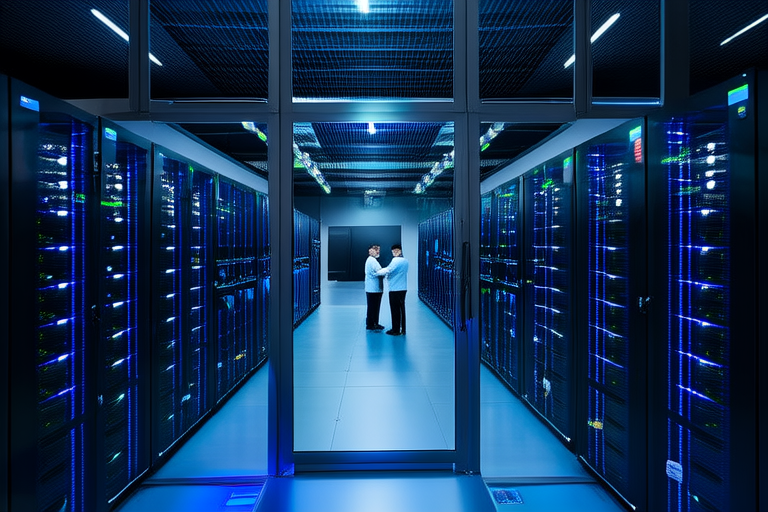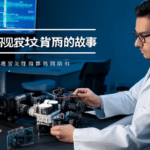“`html
The Future is Now: Integrating Artificial Intelligence in Multiple Fields
Introduction
Artificial intelligence (AI) refers to the simulation of human intelligence in machines that are programmed to think, learn, and perform tasks typically requiring human cognition. As technology advances, AI is becoming increasingly integrated into various sectors, driving innovation and progress. By enabling machines to analyze vast amounts of data, identify patterns, and make informed decisions, AI is revolutionizing industries and enhancing human capabilities. The integration of AI across multiple fields is crucial for addressing complex challenges, improving efficiency, and unlocking new opportunities for growth and development.
Healthcare
In healthcare, AI is transforming patient care through predictive analytics, personalized medicine, robotic surgery, and telemedicine. Predictive analytics allows healthcare providers to anticipate patient outcomes, prevent diseases, and manage resources more effectively. Personalized medicine tailors treatments to individual patients based on genetic profiles and medical histories. Robotic surgery enhances precision and reduces recovery times. Telemedicine enables remote consultations, expanding access to care. Future advancements could include AI-powered diagnostics, drug discovery, and wearable health monitors.
Finance
AI is revolutionizing financial services by enhancing fraud detection, risk management, algorithmic trading, and customer service. Fraud detection algorithms can identify suspicious transactions in real-time, reducing losses. Risk management models assess creditworthiness and investment risks more accurately. Algorithmic trading executes trades at optimal times, increasing profitability. Customer service chatbots provide instant support, improving customer satisfaction. However, challenges include ensuring data privacy, mitigating algorithmic bias, and addressing regulatory compliance. Real-world applications include AI-driven fraud detection systems, robo-advisors for wealth management, and virtual assistants for customer support.
Education
AI is reshaping education by personalizing learning experiences, automating administrative tasks, and providing intelligent tutoring systems. Personalized learning adapts to each student’s pace and preferences, improving engagement and outcomes. Administrative automation streamlines processes like grading, scheduling, and student information management. Intelligent tutoring systems offer real-time feedback and guidance. AI-driven tools and platforms, such as adaptive learning software and virtual reality simulations, enhance classroom experiences. Challenges include ensuring equitable access to technology and addressing concerns about screen time.
Manufacturing
AI is enhancing manufacturing processes through predictive maintenance, quality control, and supply chain optimization. Predictive maintenance identifies equipment failures before they occur, reducing downtime and maintenance costs. Quality control systems detect defects in real-time, ensuring product consistency. Supply chain optimization improves inventory management and logistics, increasing efficiency. Use cases include AI-powered predictive maintenance systems, automated quality control inspections, and demand forecasting tools. These advancements improve productivity, reduce waste, and enhance competitiveness.
Transportation
AI is driving innovations in transportation, including autonomous vehicles, traffic management systems, and logistics optimization. Autonomous vehicles promise safer, more efficient travel. Traffic management systems use real-time data to optimize traffic flow and reduce congestion. Logistics optimization improves delivery routes and warehouse operations. Current developments include self-driving trucks, smart traffic lights, and drone deliveries. Future possibilities include fully autonomous public transportation systems and hyperloop networks. Challenges include ensuring safety, addressing legal and regulatory frameworks, and managing public perception.
Ethical Considerations
The integration of AI raises ethical considerations related to data privacy, bias in algorithms, and job displacement. Data privacy concerns arise when AI systems collect and process sensitive information. Algorithmic bias can perpetuate existing inequalities if training data reflects historical discrimination. Job displacement occurs when AI automates tasks previously performed by humans. To mitigate these risks, organizations must prioritize transparency, fairness, and accountability. Balancing the risks and opportunities requires ongoing dialogue between stakeholders, including policymakers, industry leaders, and the public.
Conclusion
The integration of AI across multiple fields holds immense potential for transforming industries and enhancing human capabilities. From healthcare to transportation, AI is driving innovation, improving efficiency, and unlocking new opportunities for growth and development. While challenges remain, addressing them through collaboration and responsible implementation will ensure that AI contributes positively to society. As we continue to integrate AI into our lives, it is essential to embrace its transformative potential while remaining vigilant about the ethical implications. The future is now, and AI is shaping it in profound ways.
“`


